一位“法国大爷”的胡同怪奇物语
A French Freak in Beijing
Original: NYLON尼龙 2023-05-31
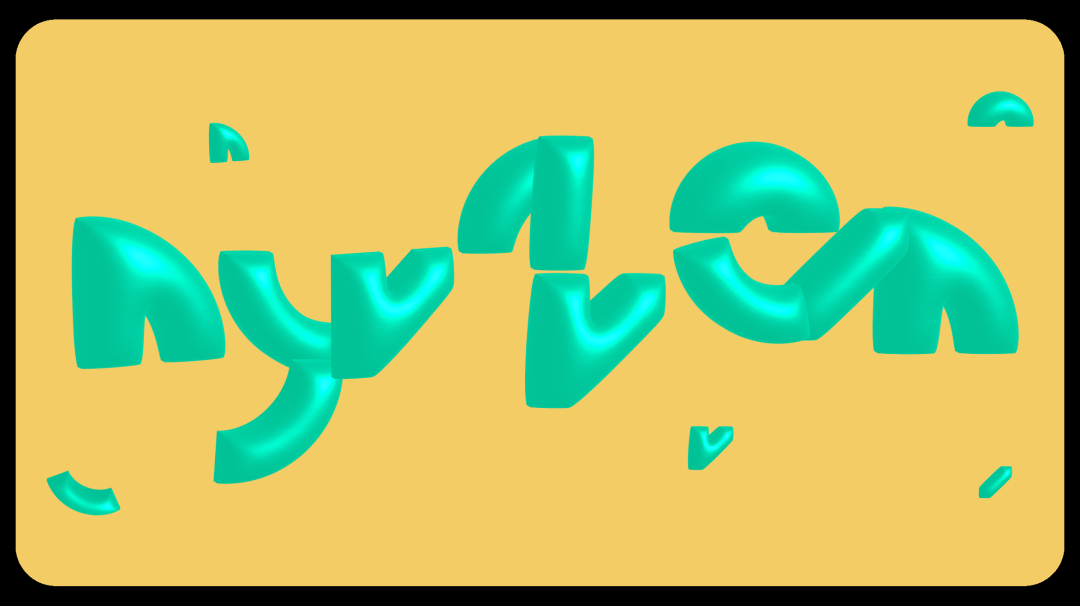
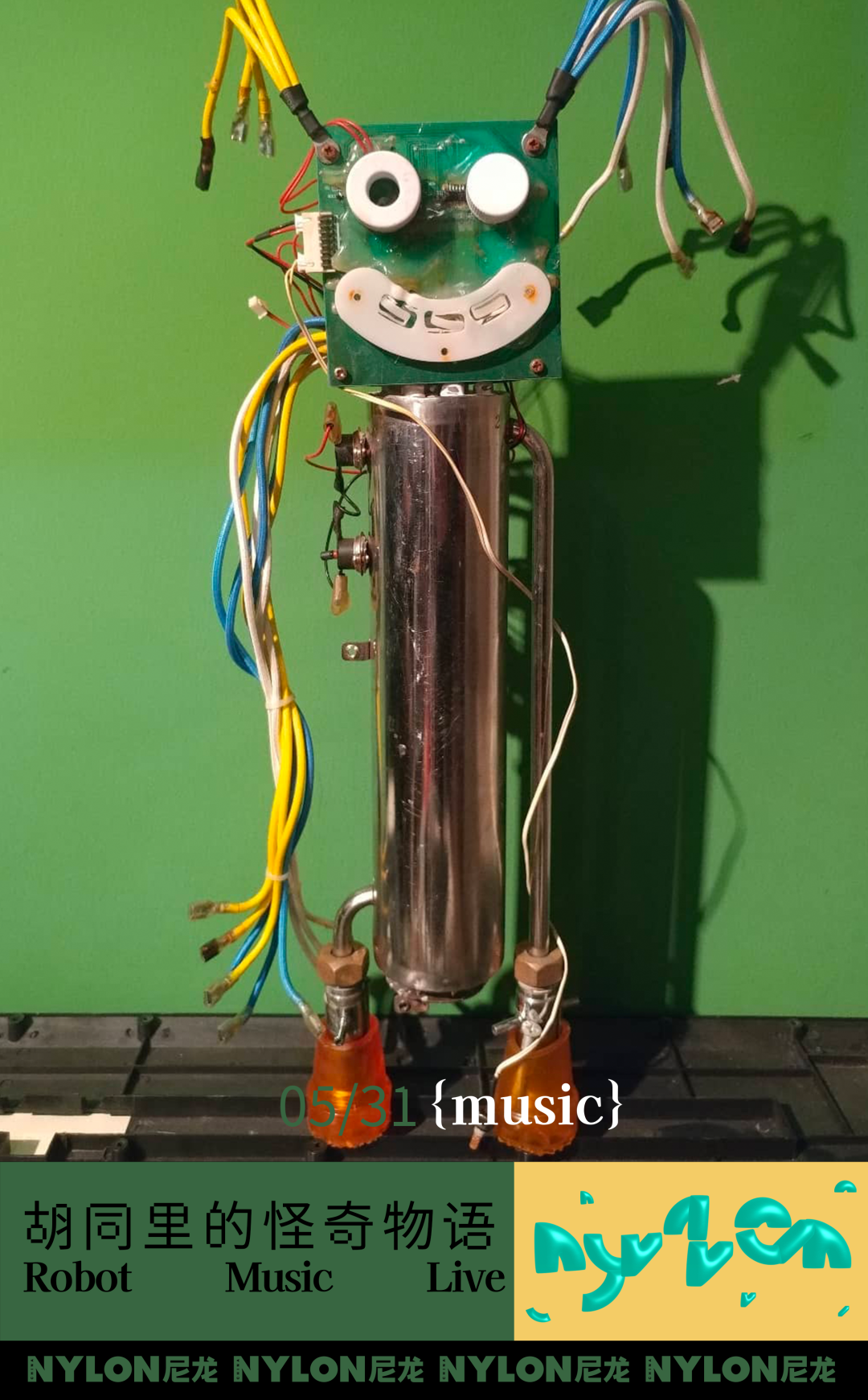
在北京,如果你常常去地下演出空间,美术馆东街的fRUITYSPACE或是四惠的UFO livehouse,你或许遇到过这样一个奇怪的场景: 一个老外摆弄着舞台上大小不一的“机器人”,使它们发出没有规律、很难称为旋律的奇异声响。 伴随着随机闪烁的灯光,不禁让人产生疑问:究竟这是音乐人实验性的演出现场, 还是一个不小心混入演出的电工,正在进行某项电路测试?
In Beijing, if you often go to underground performance venues, like fRUITYSPACE on Art Museum East Street or UFO livehouse in Sihui, you may have come across this strange scene: a foreigner fiddling with "robots" of different sizes on the stage, making them produce irregular, barely melodic sounds. Not melodic at all actually. Within the randomness of flashing LEDs, it begs the question: is this an experimental performance by a musician or an electrician who has accidentally infiltrated the show and is conducting a circuit test?
当现场声音停止,台下的观众才有机会一睹这些“机器人”的原貌:绿色电路板、连接线、电池盒子甚至是废旧的水管等构成了 “躯干四肢”;喇叭和电器外壳、游戏手柄等等意想不到的物件充当了“头部”—— 它们更像是DIY的艺术装置。混合着粗糙和精密的质感,间断或持续发出的电流信号声响, 让人不免有一阵儿恍惚,以为这些“机器人”开口说话了。
When the sound stops, the audience has a chance to see the "robots" in their original form: green circuit boards, connecting cables, battery boxes and even used water pipes form their "body and limbs"; speakers and electrical casings, gamepads and other unexpected elements. They are more like DIY art installations. The mixture of rough and sophisticated textures, the intermittent or continuous sound of electric signals, makes you think for a moment that these 'robots' are talking.
法国人Raimu aka鬼大爷(guibog)是这些“机器人”的主人。 在马斯克的脑机接口计划宣布获批人体试验的当天,我们和鬼大爷进行了一场谈话。
The Frenchman Raimu aka /guibog is the owner of these 'robots'. We had a chat with him on the very day Musk's brain-computer interface project was announced as approved for human trials.
 1. Life Modulations
1. Life Modulations
穿过鼓楼红墙下拍照打卡的人群,拐进附近一条胡同的小院,就到了鬼大爷的工作室。 推开门, 一群形态各异的“机器人”被放置在桌面和墙上:有的是典型的站立姿态, 有的则无拘束地裸露出材料内部,呈现出一种“侧重于机械和数字系统中无处不在的生物学属性”。
Passing through the crowds of people taking pictures under the red walls of the Drum Tower, and turning into a small courtyard in a nearby alley, you arrive at the studio of “Master Ghost” (on of his Chinese names). Pushing open the door, a group of 'robots' in various forms are placed on shelves and walls: some in the typical standing position, others uninhibitedly exposed inside the material, presenting a 'biological property focused on the ubiquity of mechanical and digital systems'.
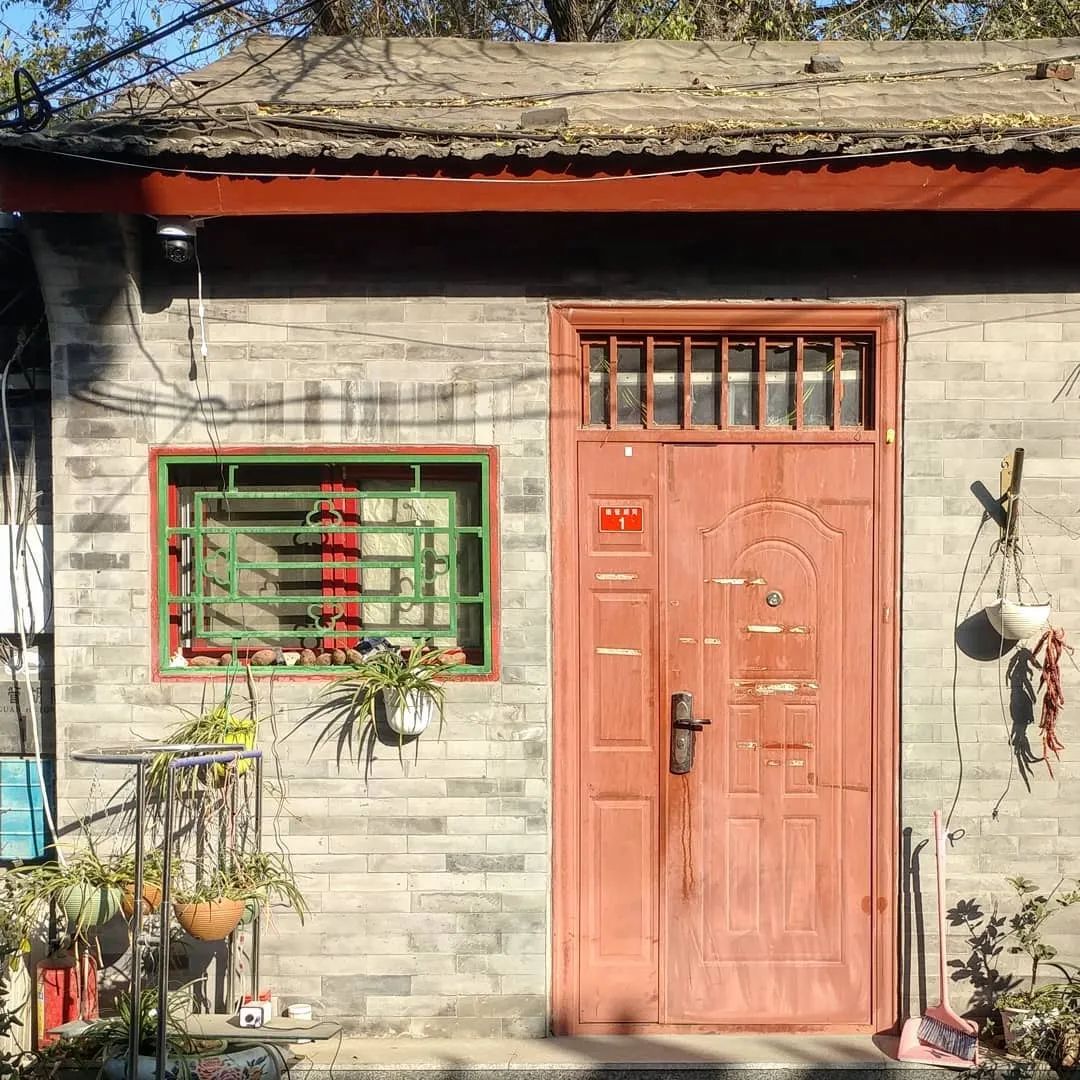 鬼大爷位于胡同内的工作室 / Mr Ghost's workshop in the hutongs
鬼大爷位于胡同内的工作室 / Mr Ghost's workshop in the hutongs
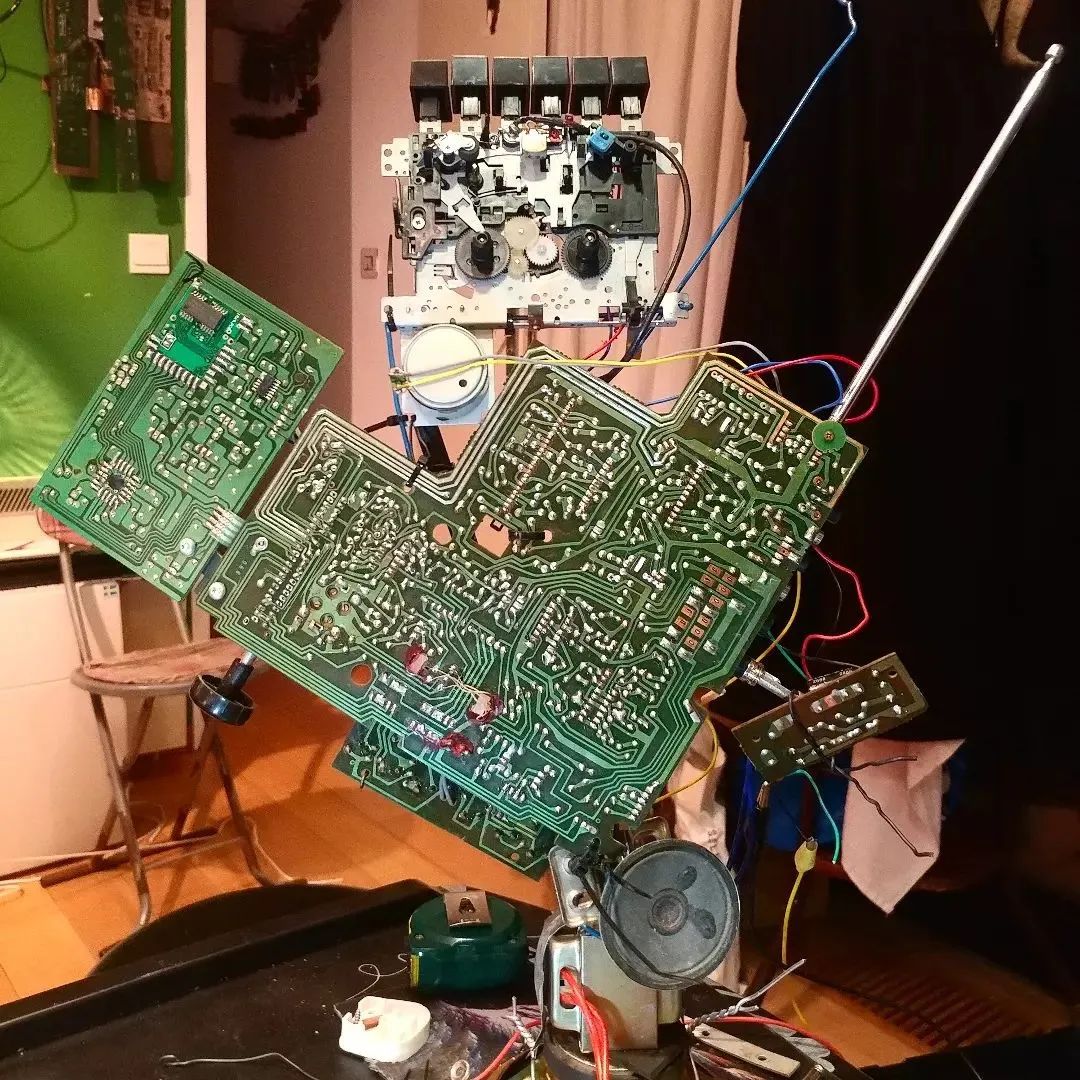
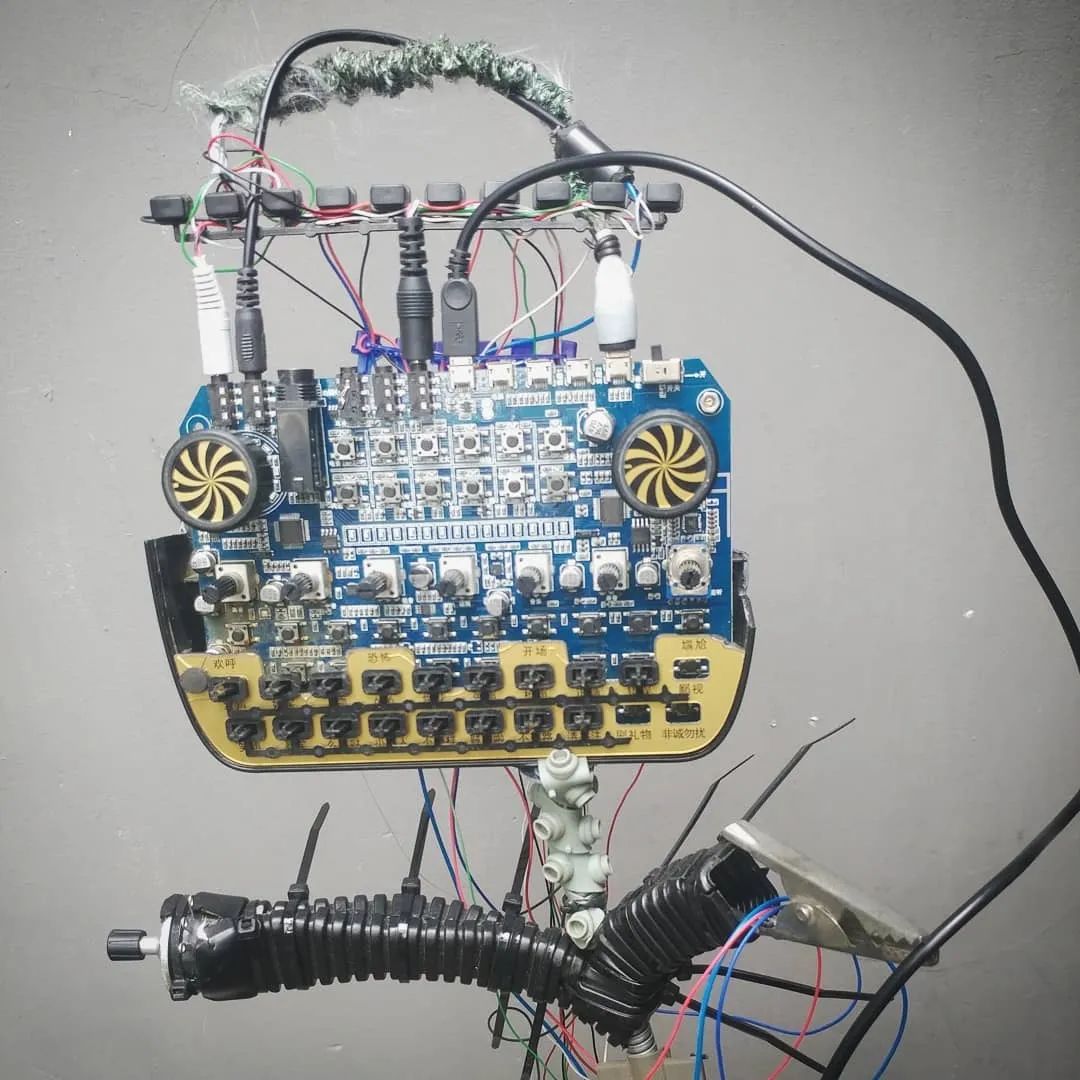 杂乱无序的电路被鬼大爷赋予生命 / Messy circuitry got a new life
杂乱无序的电路被鬼大爷赋予生命 / Messy circuitry got a new life
鬼大爷开始制造这些“声响怪物”源于一次偶然。 多年前,面对家里凌乱遍布的各种电源,他和朋友闲来无事打开了其中一个电源外壳——没想到打开了一个由电子元 件构成的微观世界,从此一发不可收拾。 这些出现在生活里普通的电源和线,也成了鬼大爷做“机器人”的第一批材料。 常见的乐器发出的声响总在预想之中,刻板 的音调也许太过无聊,鬼大爷认为“非乐器的音源所产生的声响,比乐器改造后发出的声音更有意思”。
“Master Ghost” started making these "sound monsters" by chance. Many years ago, faced with a mess of power supplies all over the house, he and a friend crushed open one of the power supply casings - and to their surprise, opened up a magical world of electronic components. These commonplace power supplies and wires became the first materials used by Mr. Ghost to make his "robots". The sound produced by common musical instruments is always expected, and the stereotypical tones are perhaps too boring, so Mr. Ghost believes that "the sound produced by non-instrumental sources is more interesting than the sound produced by a modified instrument".
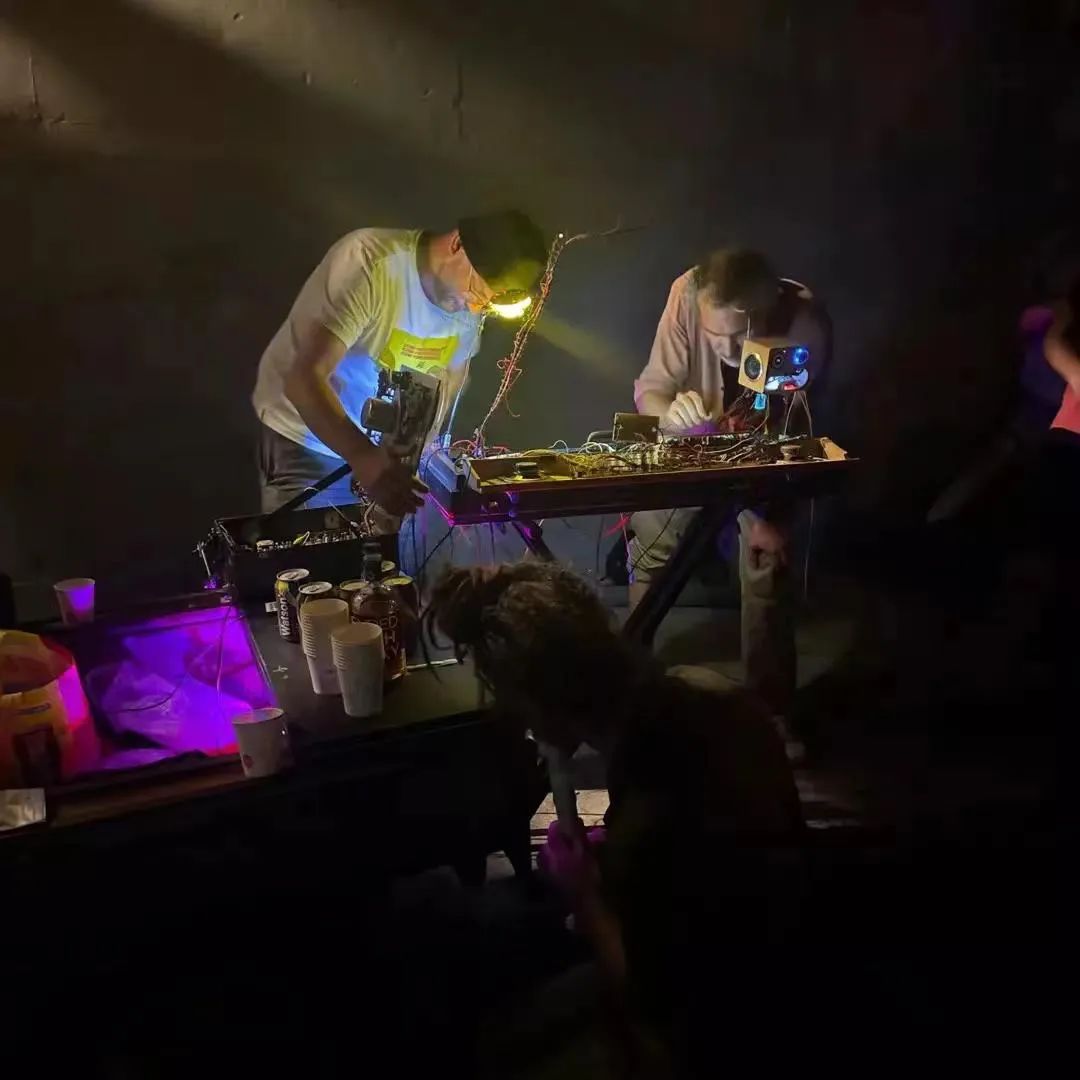
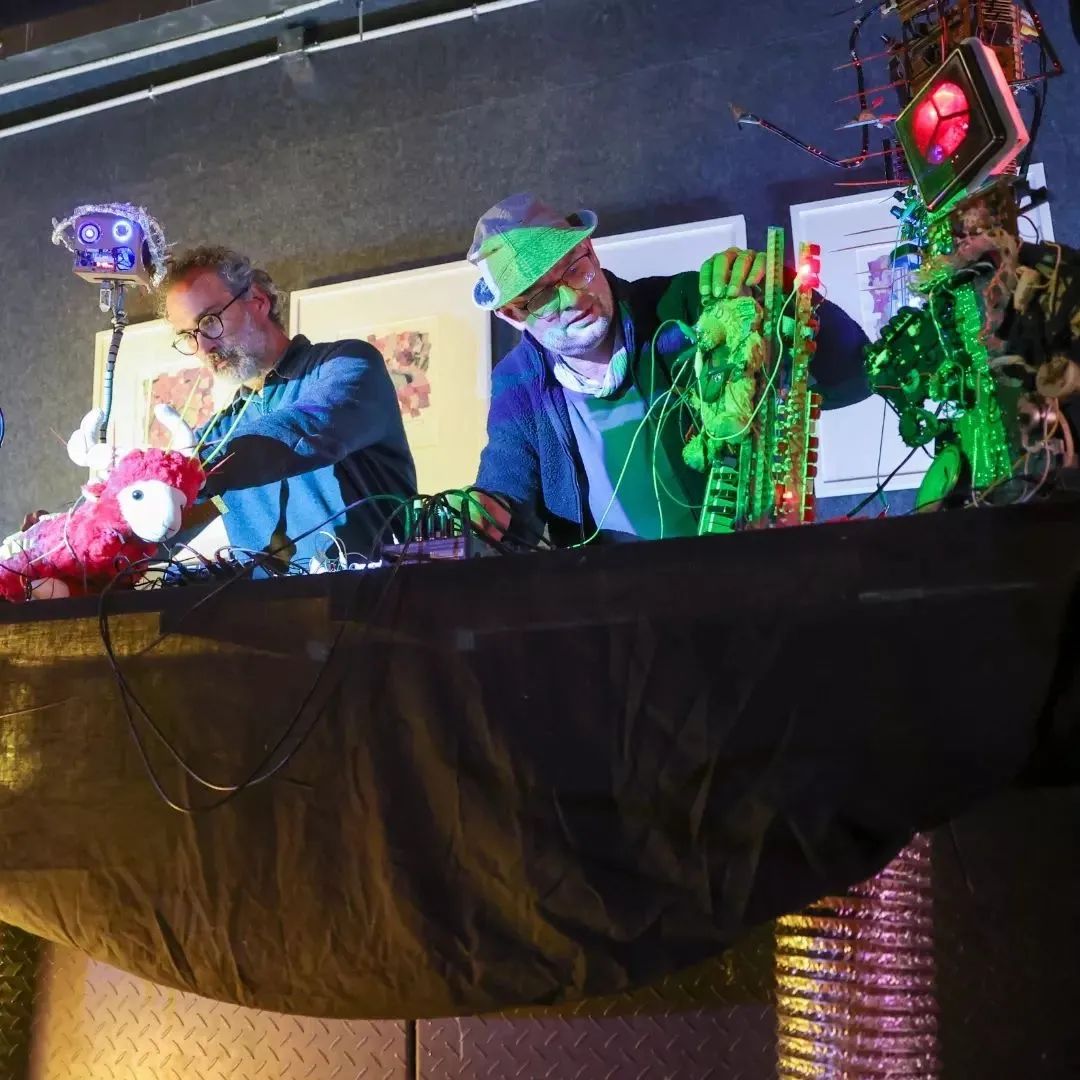 鬼大爷与朋友Julien aka “巨”在演奏 / Mr Ghost and Julien aka "Ju" on an event
鬼大爷与朋友Julien aka “巨”在演奏 / Mr Ghost and Julien aka "Ju" on an event
在最初入坑制造“机器人”时,鬼大爷受到了一对瑞士艺术家组合的影响。 这是一部用16毫米拍摄的名为《The Way Things Go》 的影像,短短的29分钟里,呈现了由轮胎、垃圾袋、梯子、木板、肥皂、油桶、废旧鞋子、 汽油等日常材料组成多米诺骨牌般的连锁触发反应。 回收废旧机器的过程给了鬼大爷造“机器人”的灵感。
In his initial foray into making 'robots', Mr Ghost was influenced by a duo of Swiss artists. The Way Things Go, a 16mm video, is a short 29-minute film that shows a domino-like chain of everyday materials such as tires, rubbish bags, ladders, planks of wood, soap, oil drums, used shoes and petrol. The process of repurposing scrap material and discarded machines gave the inspiration to build these 'robots'.
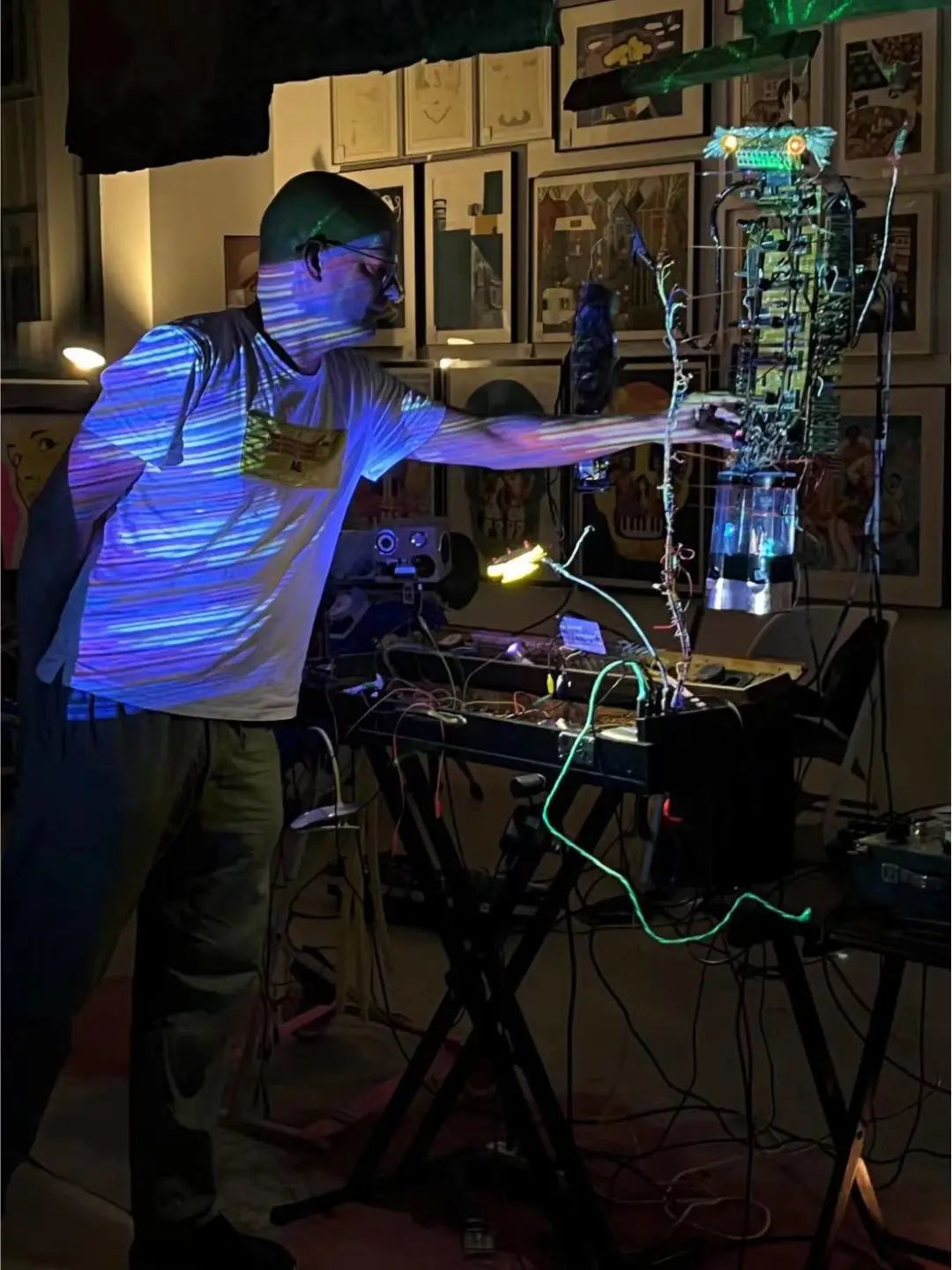 鬼大爷和他的机器人朋友 / Mr Ghost and his robot friends
鬼大爷和他的机器人朋友 / Mr Ghost and his robot friends
他把这种实践呈现在音乐演出中。 在鬼大爷的演出现场,他有时是一个人,有时和朋友一起,但始终坚持只使用自己改造的“机器人”演出, 这种方式在他参与的实验音乐演出里也算少见的景观——很少有演出者像鬼大爷这样花上几个月对一件“非常规乐器”去“大动干戈”。 与很多音乐人不同,鬼大爷并不爱自诩为音乐人或艺术家,他只关心机器人,和常见的音乐场景保持着距离。
Mr Ghost brings this practice to his experimental musical performances. Sometimes he performs alone, sometimes with friends, but always with his own modified 'robots', a rare sight in the experimental music performances he has been involved in - few performers have spent months 'fussing' with an 'unconventional instrument' in the way that Mr Ghost has. Unlike many musicians, he doesn't like to claim to be a musician or an artist, he only cares about robots and keeps his distance from the common music scene.
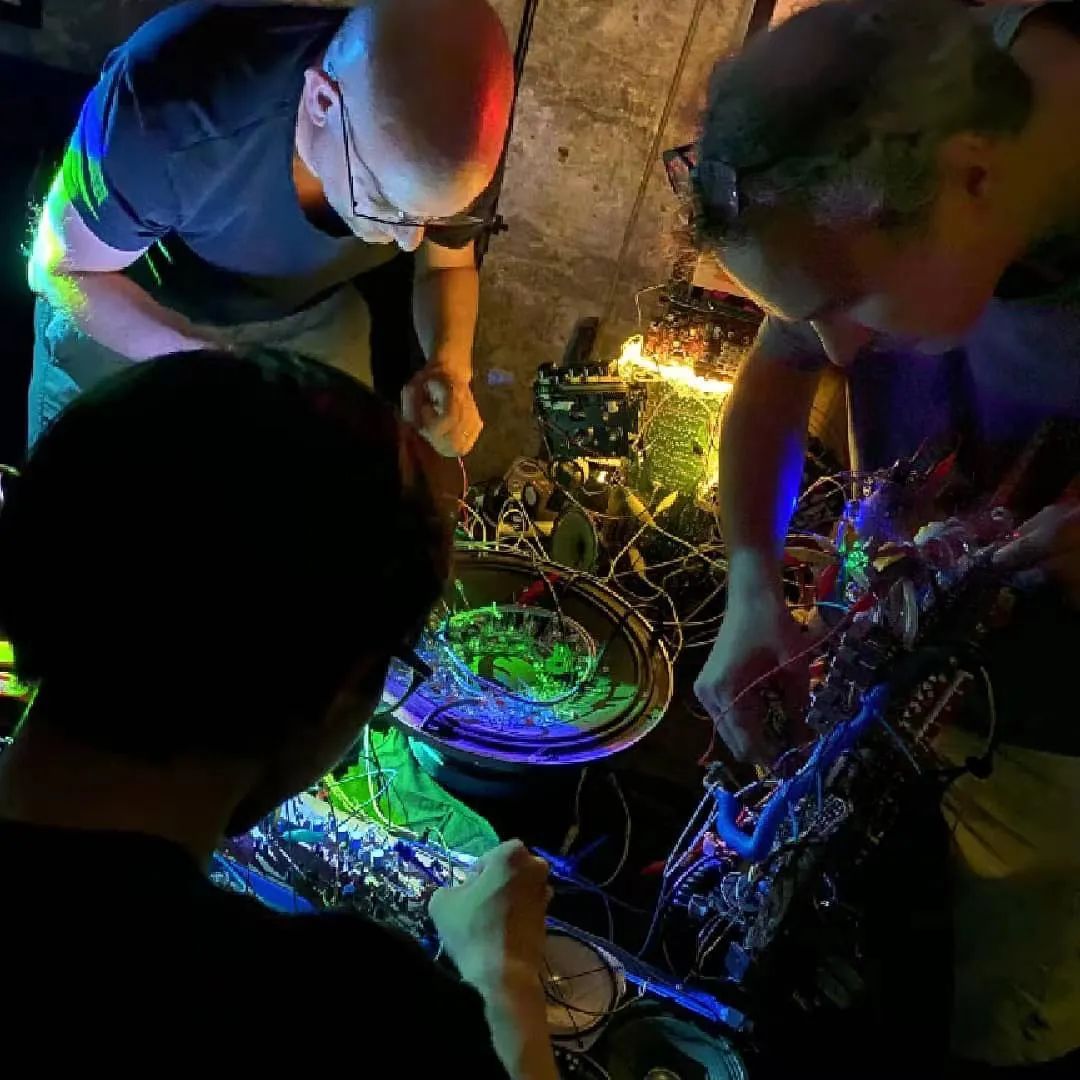 鬼大爷与朋友Julien马进在音乐演出现场 / Mr Ghost with Julien and Majin during an event
鬼大爷与朋友Julien马进在音乐演出现场 / Mr Ghost with Julien and Majin during an event
这种距离直到另一位乐手朱文博的出现才被打破。 他曾经是鬼大爷的同事,也是北京本地持续多年的实验音乐演出与出版厂牌“燥眠夜”的主理人。 在过去,他关注到鬼大爷的机器人很契合充满开放性的实验音乐演出,便邀请鬼大爷参与其中。
This distance was not broken until the appearance of another musician, Zhu Wenbo. He used to be a colleague of Mr Ghost and is the director of Zoomin' Night, a local experimental music performance and publishing label that has been running for many years in Beijing. Some time ago he noticed that Mr Ghost's robots were a good fit for the open-ended experimental music performances and invited him to participate.
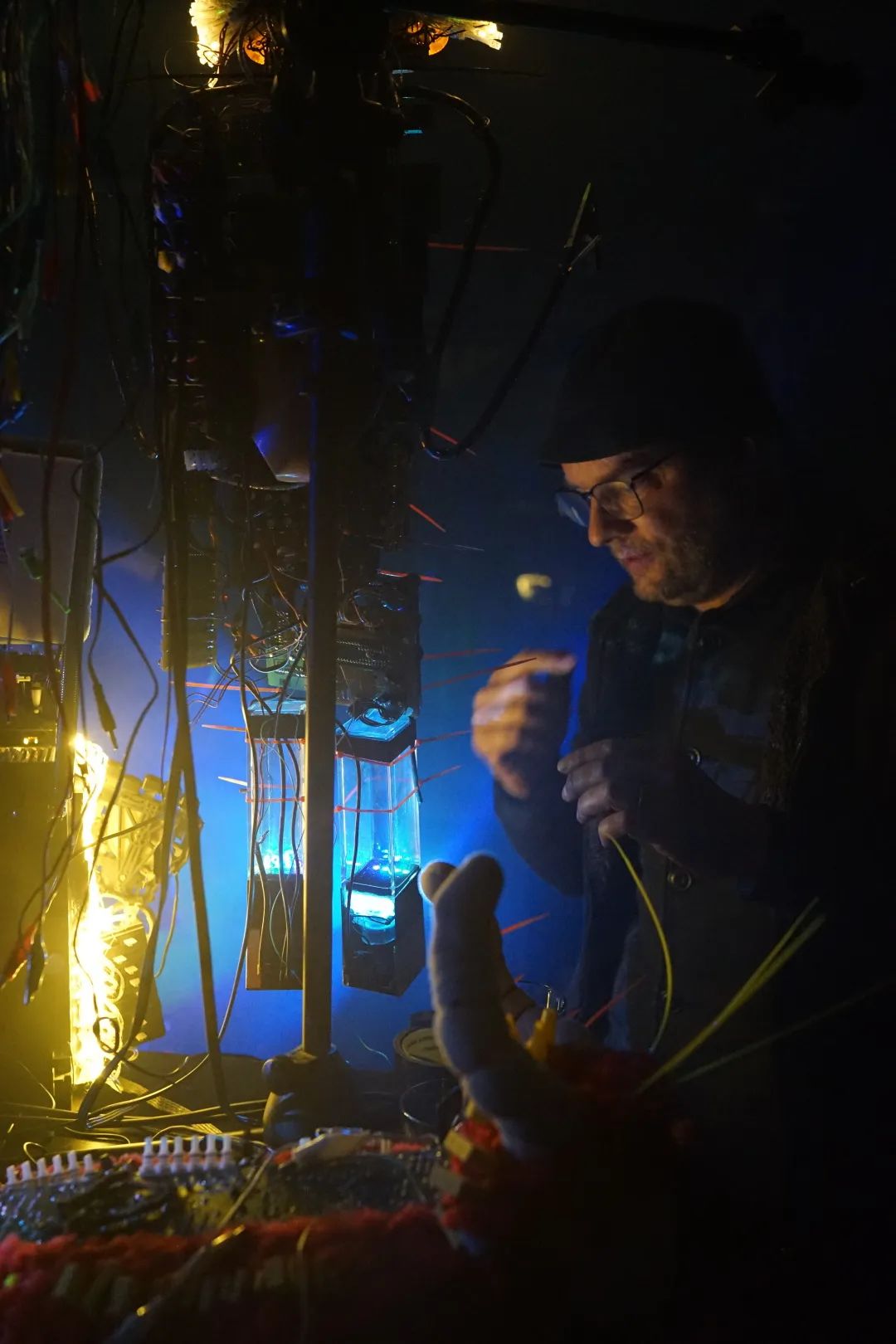 鬼大爷正在制作机器人 / Creating a robot
鬼大爷正在制作机器人 / Creating a robot
“机器人我会一直做,哪怕周围没有观众”,鬼大爷说。 在这个曾经使用合成器参与巴黎当地techno演出的法国人身上, 也许是生活里的念头影响了他的观念,使得做“机器人”一步步融入到了他的日常生活里。
"I'd always do robots, even if there's no audience around", says Mr Ghost. In the case of this Frenchman, who was part of the free party movement in France, it is perhaps the ideas in his life that have influenced his perceptions and made "robotics" a part of his daily life.
 2. Machines Have Souls
2. Machines Have Souls
“而我,这个可怜的、四处碰壁的家伙才是该被人遗弃的,该任人歧视、打骂和践踏”。 鬼大爷过往的演出介绍里,他经常引用这段出自玛丽·雪莱的小说《弗兰肯斯坦》的话。 在小说里,“弗兰肯斯坦”是穿着西装、身上插着钢钉的疯狂科学家,用拼凑尸块的方式创造了一个怪物。
"I, the miserable and the abandoned, am an abortion, to be spurned at, and kicked, and trampled on. Even now my blood boils at the recollection of this injustice." In his past show introductions, the Ghost quoted this passage from Mary Shelley's novel Frankenstein. In the novel, "Frankenstein" is a mad scientist in a suit with steel spikes sticking out of his body, who creates a monster by piecing together body parts.
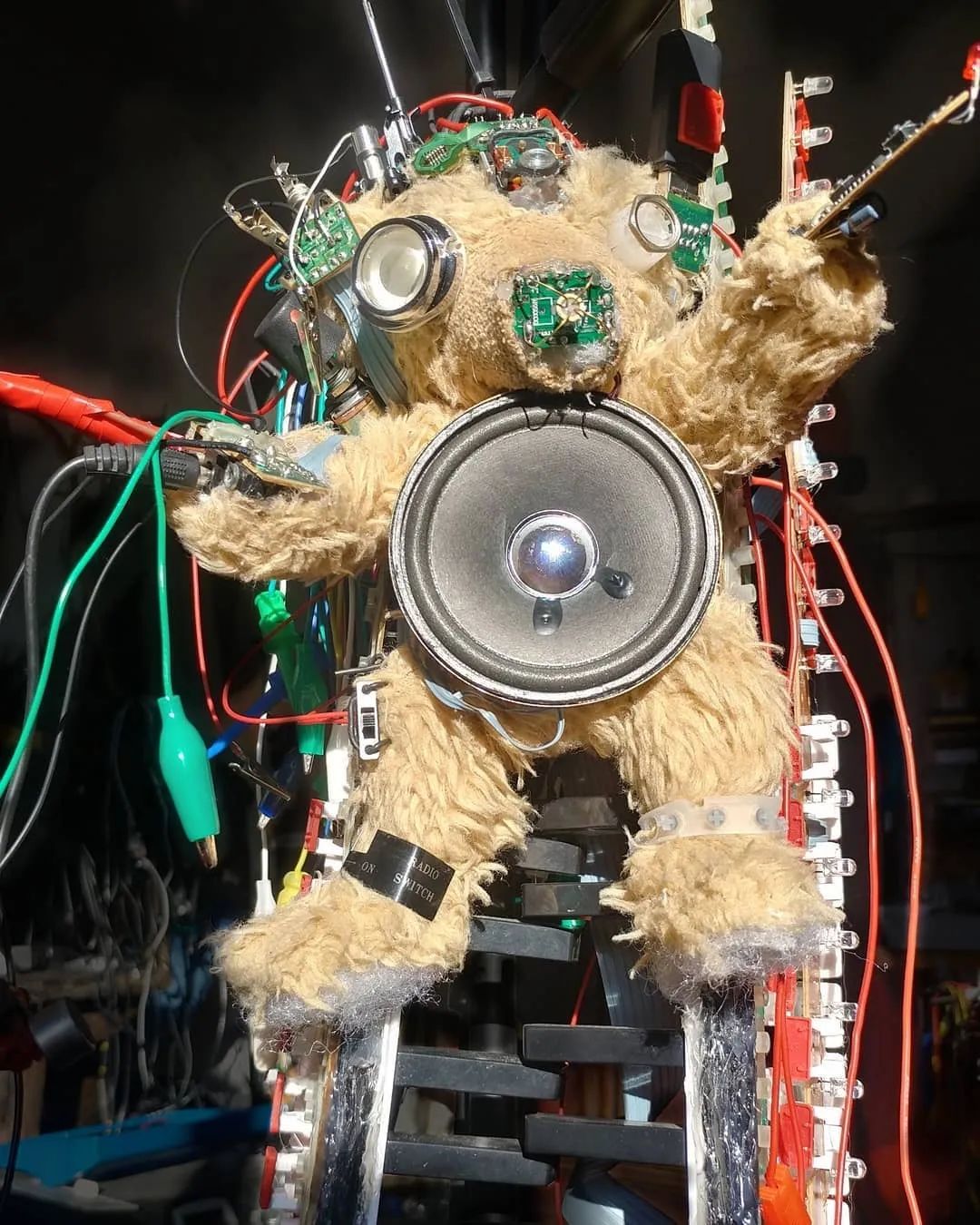
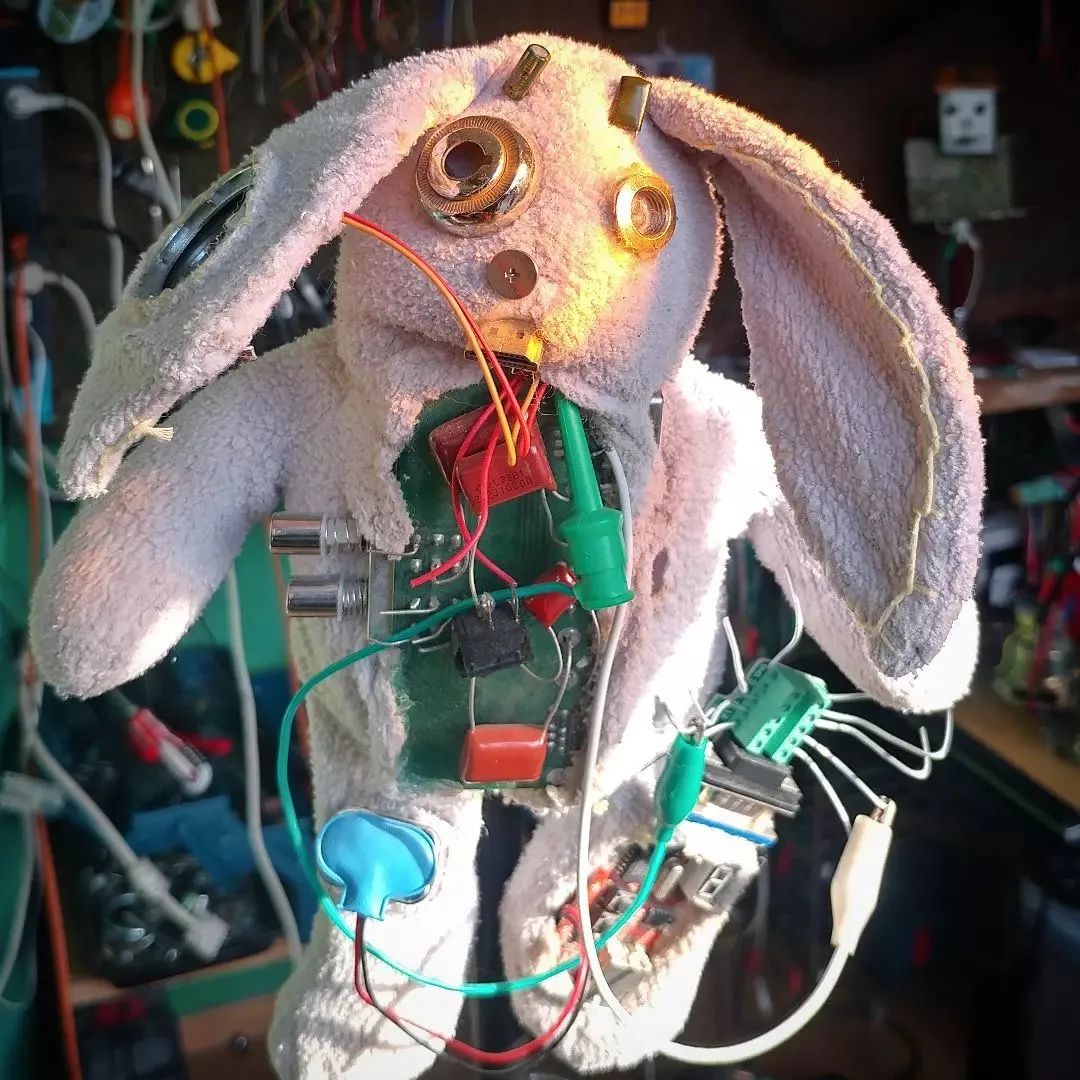
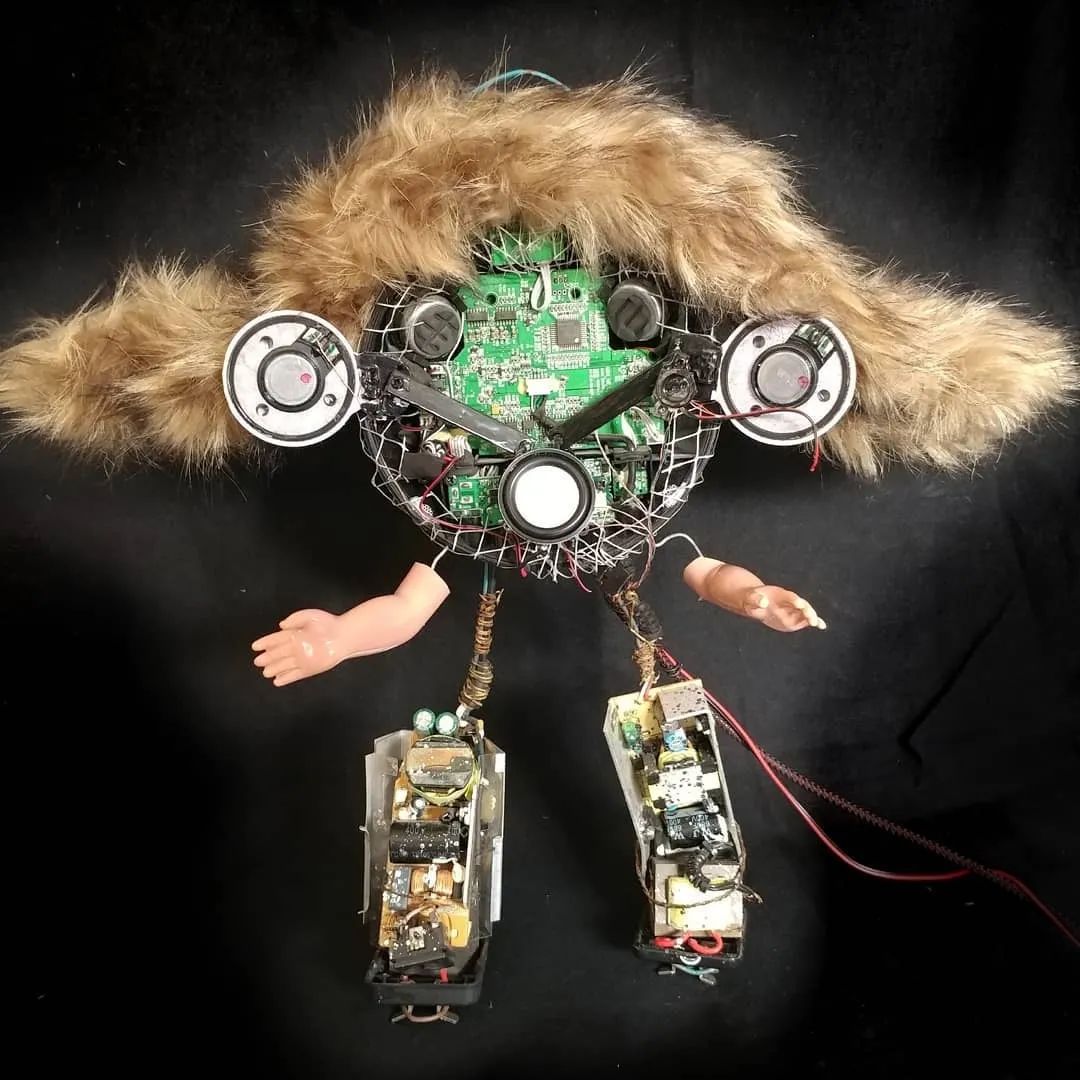 鬼大爷机器人朋友里的“可爱担当”们 / The "cute roles" in Uncle Ghost's robot friends
鬼大爷机器人朋友里的“可爱担当”们 / The "cute roles" in Uncle Ghost's robot friends
或许在鬼大爷看来,自己制造这些“机器人”与疯狂的弗兰肯斯坦有着相似之处。 这些语义不明但印象深刻的电流声响,通常是由鬼大爷从二手市场、路边、 朋友弃用闲置的物件里获得的一块块机械材料“拼凑”而成。 它们被人们视为电子废旧物躺在角落,却是鬼大爷眼里“有生命的朋友”。 这些材料经由鬼大爷的手,被重组、链接、焕发新生。
Perhaps there is a resemblance to the madman Frankenstein in the way the Ghost master sees himself making these 'robots'. These semantic but impressive electrical sounds are often "cobbled together" from pieces of mechanical material obtained from second-hand markets or picked up in bumps. They are regarded as electronic junk lying in the corner, but they are parts of "living friends" in the eyes of Mr. Ghost. Through his hands, these materials are reconstructed, linked and given a new lease of life.
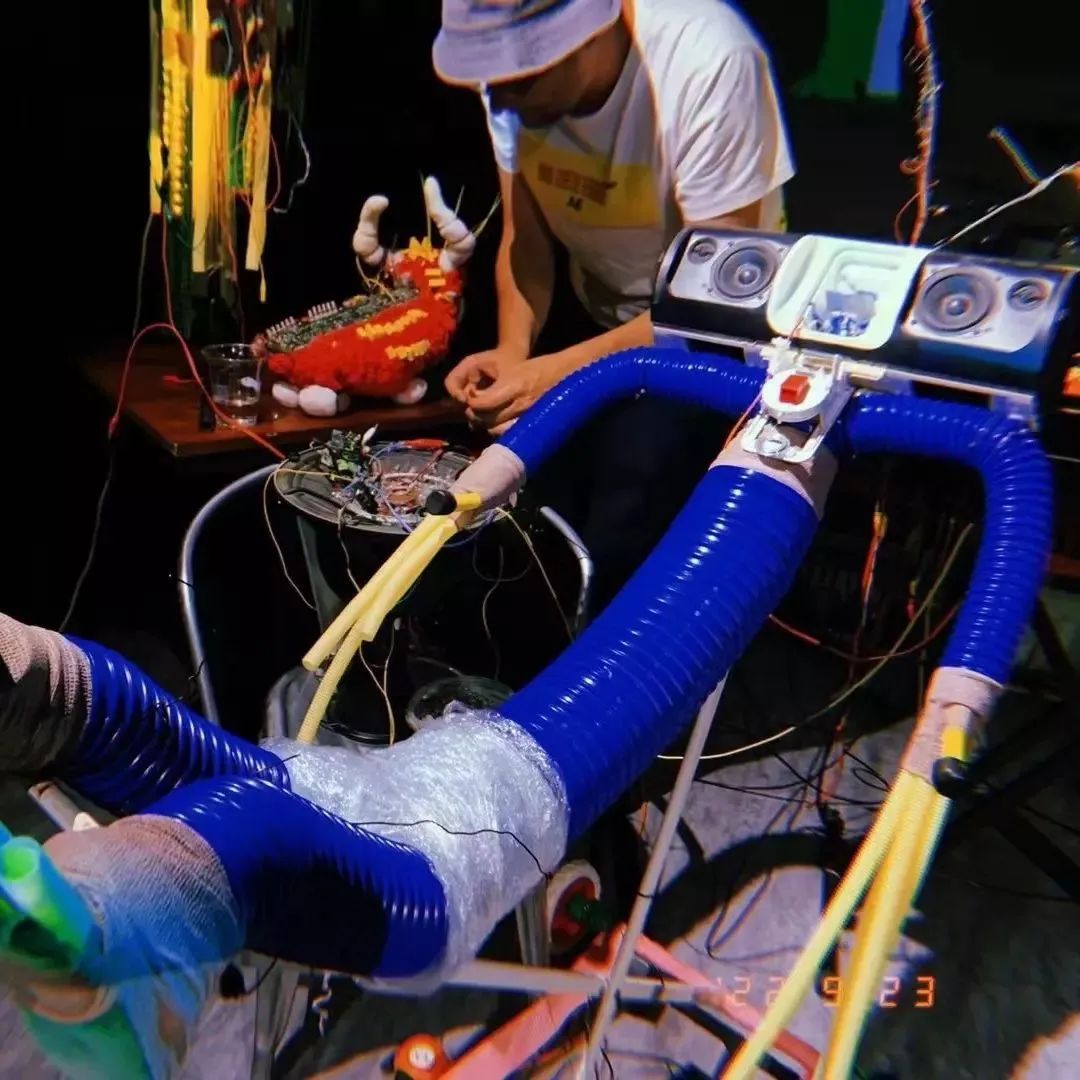 正在组装机器人的鬼大爷像是在给其看病治疗 / Operating on robots or doing live surgery?
正在组装机器人的鬼大爷像是在给其看病治疗 / Operating on robots or doing live surgery?
但与标准化的工业生产不同,鬼大爷的“机器人”没有刻板的规范,因此材料的选择也不是唯一的:“没有这件,总有其他合适的”。 至于和这些发声机器的关系,更接近于一种距离感的陪伴:他不会限定“机器人”是什么样,“机器人”也不会向他提出诉求,只要待在胡同里就行了。
But unlike standardised industrial production, there are no rigid specifications for Mr. Ghost's 'robots', so the choice of materials is not unique: "If you don't have this one, there's always something else that fits". As for the relationship with these vocal machines, it is closer to that of a distant companionship: he does not define what the 'robots' are like, nor do they make demands of him, as long as they stay there.
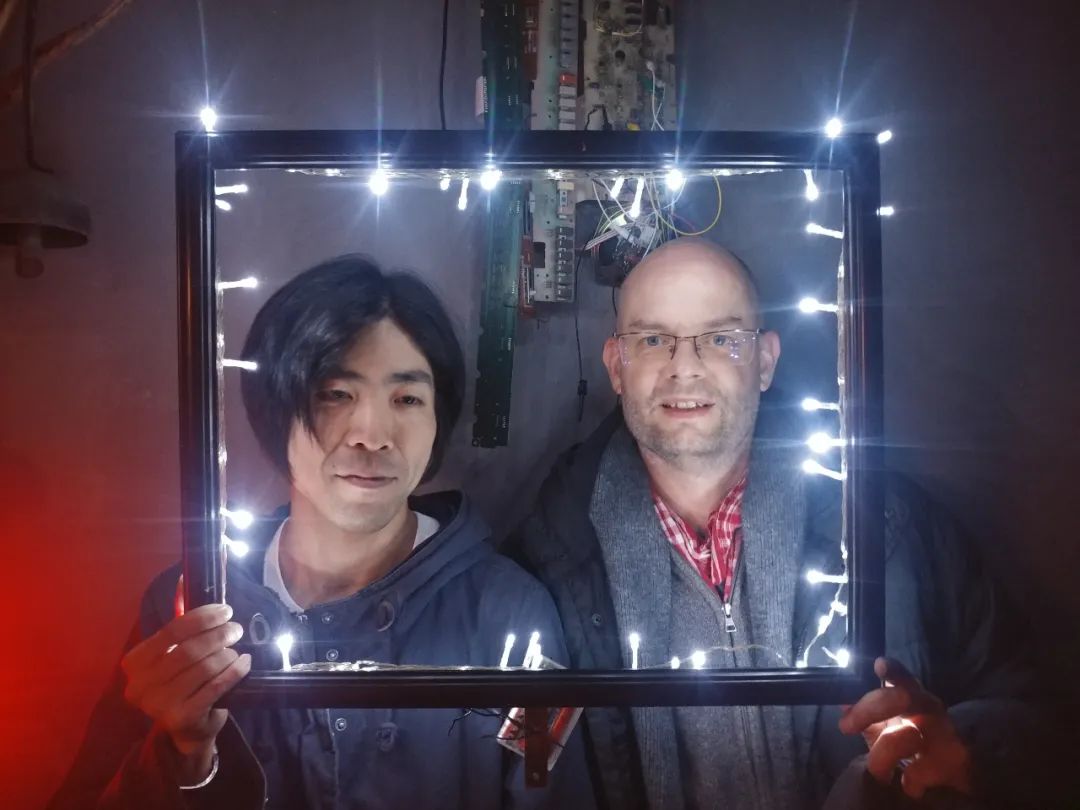 鬼大爷与日本乐手中田粥(Kayu Nakada)/ With his Japanese friend Kayu Nakada
鬼大爷与日本乐手中田粥(Kayu Nakada)/ With his Japanese friend Kayu Nakada
在制造“机器人”的过程中,也让鬼大爷遇到了志同道合的人。 2019年,朱文博的“燥眠夜”组织了一场日本乐手中田粥(Kayu Nakada)的演出,古典音乐作曲出身的中田粥却做起了实验性十足的演奏——他把合成器和鼓机的电路板组在一起,通过短路发出声响,这让同样是电路板收 集者的鬼大爷感到了深刻的共鸣。 在中田粥眼里,他并不在意控制声音的“准确性”,对常规乐器也没兴趣,这也和鬼大爷用“机器人”演奏的观念不谋而合: “我不再想着去设法控制它们的声音,而是以我对它们的熟悉度来摸索。 我与机器的关系,就好比和朋友的相处,越熟悉就会越了解它的声音特质,但依旧无法按自己预想的(像其他常规乐器那样)发出声音。 ”,鬼大爷说道。 因为这些废旧电路板触发的声音具有的随机性,因此每一次的演出都是仅有一次的现场,无法复制和重现。
In 2019, Zhu Wenbo's "Zoomin’ Night" organised a performance by Japanese artist Kayu Nakada. Nakada played an experimental set - he puts together circuit boards from synthesizers and drum machines and make sounds by short-circuiting them. This struck a chord with Mr Ghost, who is also a circuit board collector. Nakada doesn't care about controlling the 'accuracy' of the sound, nor is he interested in conventional instruments, which coincides with Ghost's idea of playing with 'robots': "I don't think about trying to control their behavior, I’d rather try to feel them out as I know them. My relationship with the machines is like that of a friend, the more I get to know them, the more I understand their sonic qualities, but they still don't sound the way I want them to", said the ghostly Master. Because of the random nature of the sounds triggered by these scrap circuit boards, each performance is a one-time-only live performance that cannot be replicated or recreated.
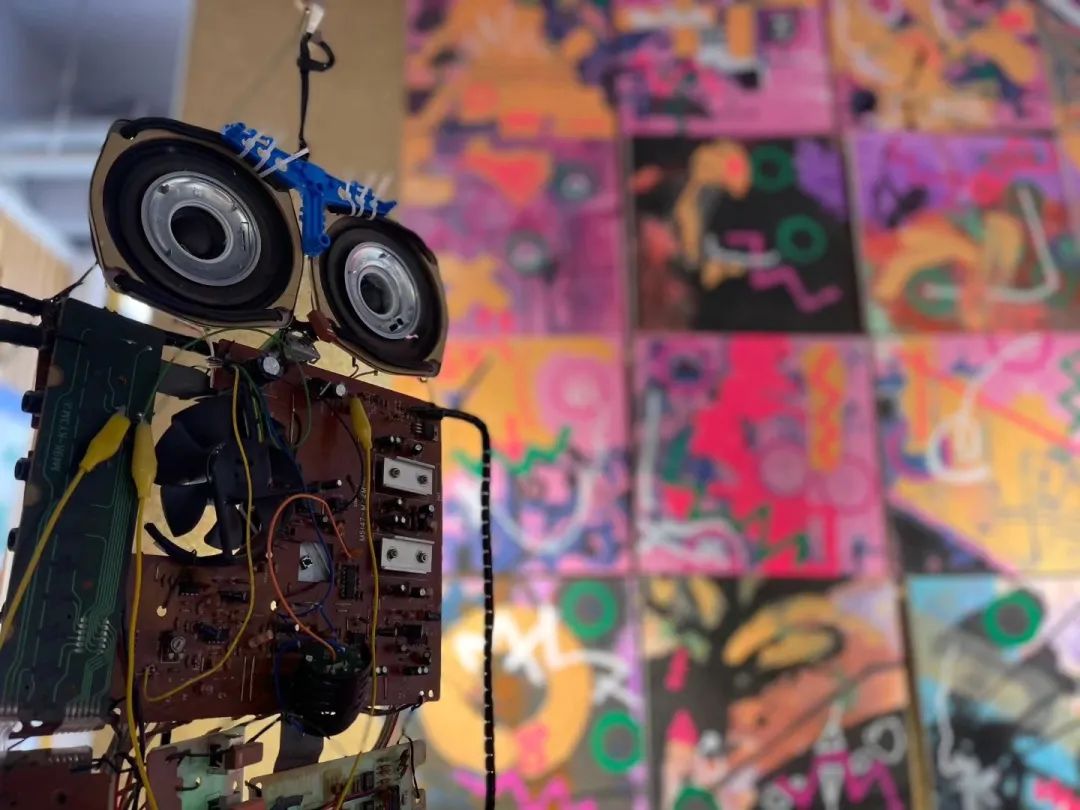 鬼大爷的机器人在MC Guru展览展出 / Robots at MC Guru's exhibition
鬼大爷的机器人在MC Guru展览展出 / Robots at MC Guru's exhibition
鬼大爷说,他喜欢以前电视里有时出现的glitch画面,就像一种生命在对话。 glitch本意为差错故障,在不断加工和再创造中衍生出了美学和亚文化。 舍弃掉“错误”,处处强调“正确”、“有用”的世界,总归不太有意思。 鬼大爷认为,这些机械材料重新组合后发出的声音,便可以视作是一种电流信号的错误,而“这就是属于它们的表达方式”。
Mr Ghost likes glitch images that sometimes appears on television, popping up like a kind of dialogue between beings. Glitch, which is a bug or a misbehavior, has been processed and recreated to produce an aesthetic and full subculture. A world where the "right" and the "useful" are always emphasized instead of the "wrong" is always less interesting. The sound produced by the reassembly of these mechanical materials can be seen as an glitch in the electrical signals, and "this is their way", according to Mr Ghost.
 3. The Hutongster
3. The Hutongster
如今,鬼大爷已经在北京生活了十八年,一直住在泛鼓楼一带,名副其实的“胡同串子”。 平日里,他是在豆瓣上班的程序员,下了班,他就遁入工作室闷头捣鼓。 这些年,不断诞生的“机器人”已经让鬼大爷的工作室显得拥挤: 带着粗糙生活感的“机器人”与胡同的烟火气莫名契合。 而他对胡同持续且漫长的痴迷在这个小院里随处可见——这种情感远远超出了一个普通老外对中国文化的简单好奇。
Mr Ghost has been living in Beijing for eighteen years now and has always lived in the Gulou area, as a veritable "hutongster". (Hutong are specific little alleys in Beijing). In his spare time, he is a programmer working at Douban, a popular Chinese social media platform, and after work, he retreats to his studio to work on his projects. Over the years, the constant birth of "robots" has overcrowded Master Ghost's studio: "robots" with a gritty sense of life that inexplicably fits in with the smoky atmosphere of the hutongs. And his ongoing and lengthy obsession with the hutongs is evident throughout the small courtyard - a sentiment that goes far beyond the simple curiosity of an ordinary foreigner about Chinese culture.
与鬼大爷出没舞台的不确定性相比,生活里的他拥有更多确定的部分: 一周两天的周末休假,鬼大爷选择和孩子们呆在一起,这让他感到自在和松弛。 他认为,尽管做“机器人”给他的生活带来了一些新鲜事儿,但即使“没有它们,生活也可以继续”。
Mr Ghost has more a normal and stable life beside the uncertainty of his stage appearances: on his weekends, he chooses to spend time with his children, which makes him feel at ease and relaxed. He believes that although being a 'robot' has brought something new to his life, "life can go on without them".
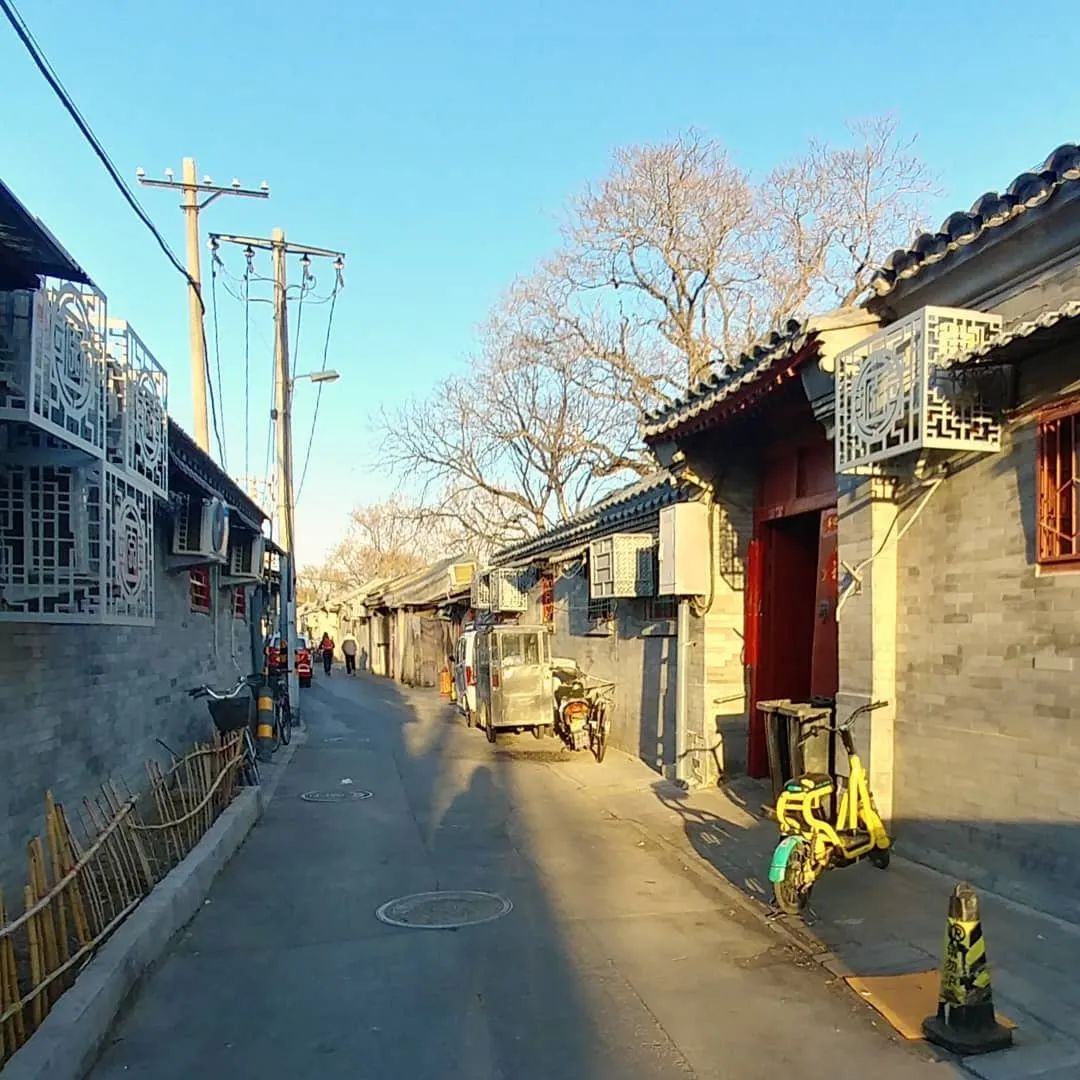
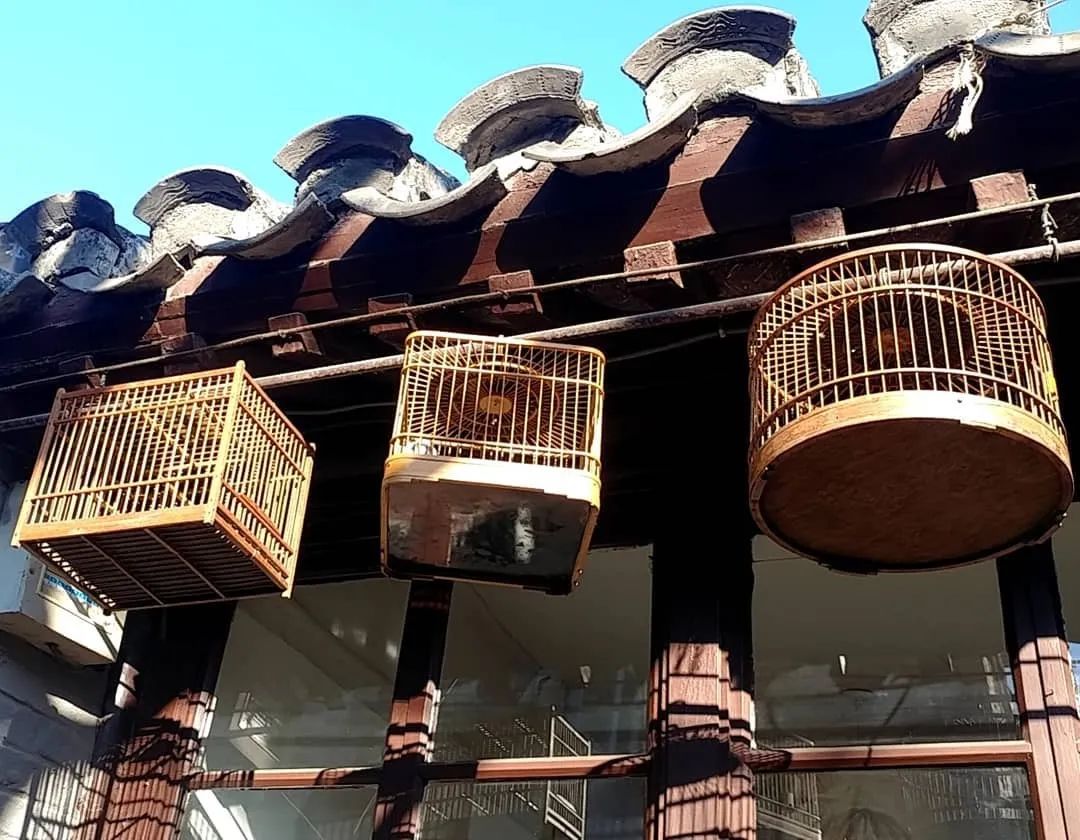
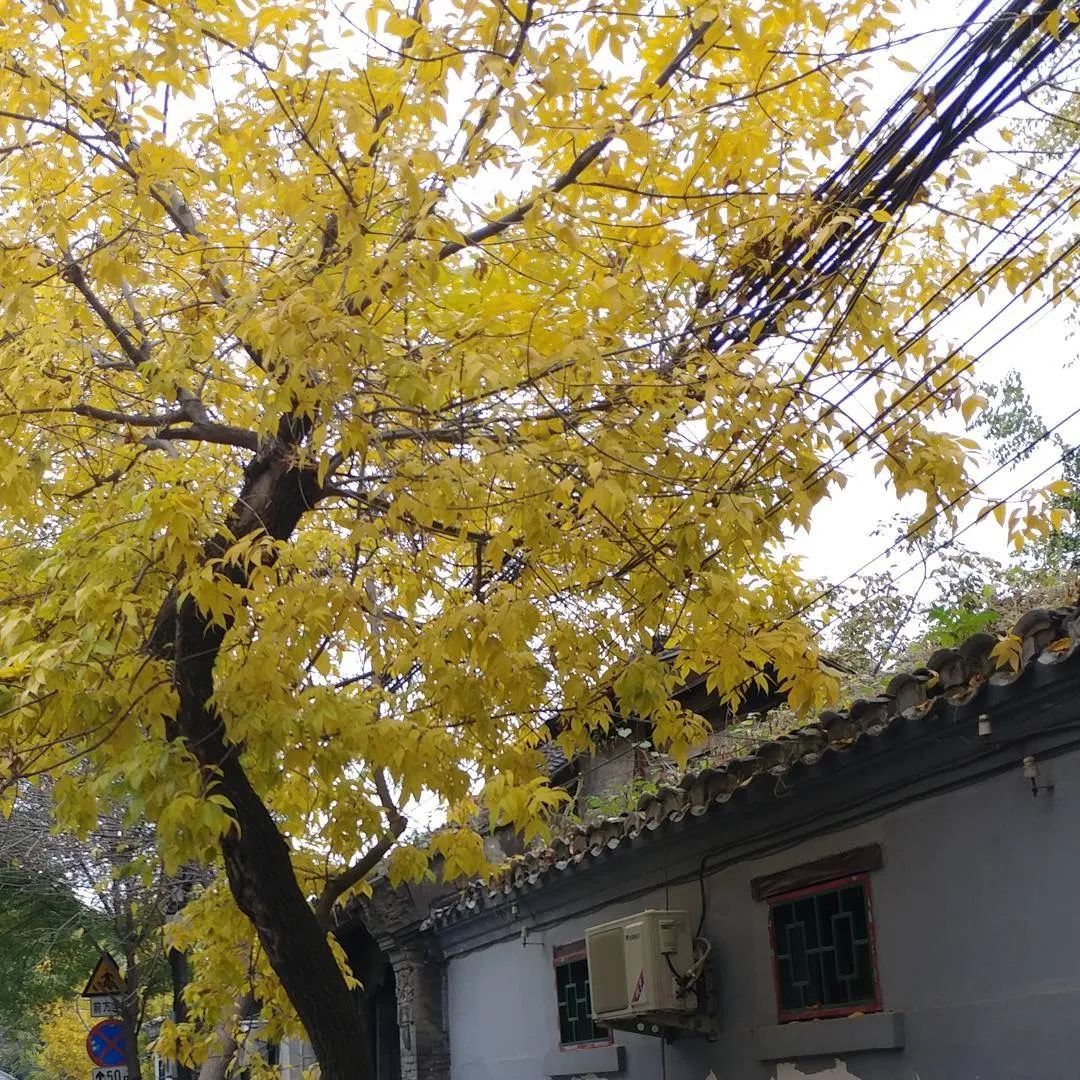 鬼大爷喜欢享受胡同里的自在与松弛 / Beijing's hutongs
鬼大爷喜欢享受胡同里的自在与松弛 / Beijing's hutongs
但永远有两全其美的办法。 庆幸的是, 鬼大爷的三个孩子都很喜欢这些手工改造的机器朋友——当他们看到不再是新欢的 兔子玩偶在爸爸的手里“张口说话”,充满了惊讶和欣喜。如今14岁、 作为孩子里最年长的“老大”,在鬼大爷的影响下承担起了小院家具、家电的修理工作。 这也得益于工作室里丰富的材料和工具,是孩子们手工实践的天然场所。
But there is always a way to have the best of both worlds. Thankfully, all three of Master Ghost's children love these hand-made machine friends - they are amazed to see the rabbit doll they receives as a gift some years ago being reused as a small but slightly frightening “Soniferous teddy cyborg”. The kids are at ease in Mr Ghost’s workshop and can use most materials and tools for their own crafting ideas, as long as they put them back afterwards.
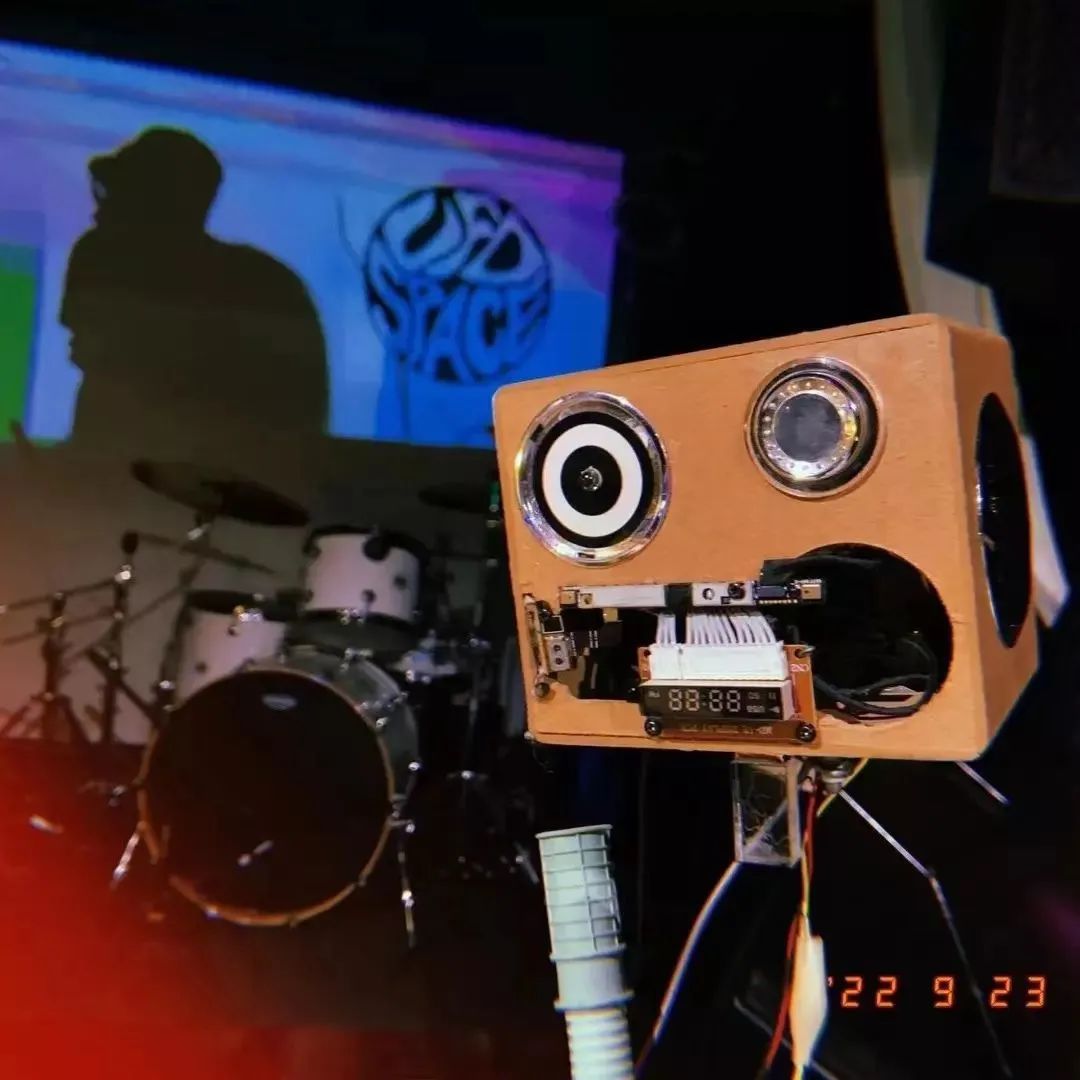
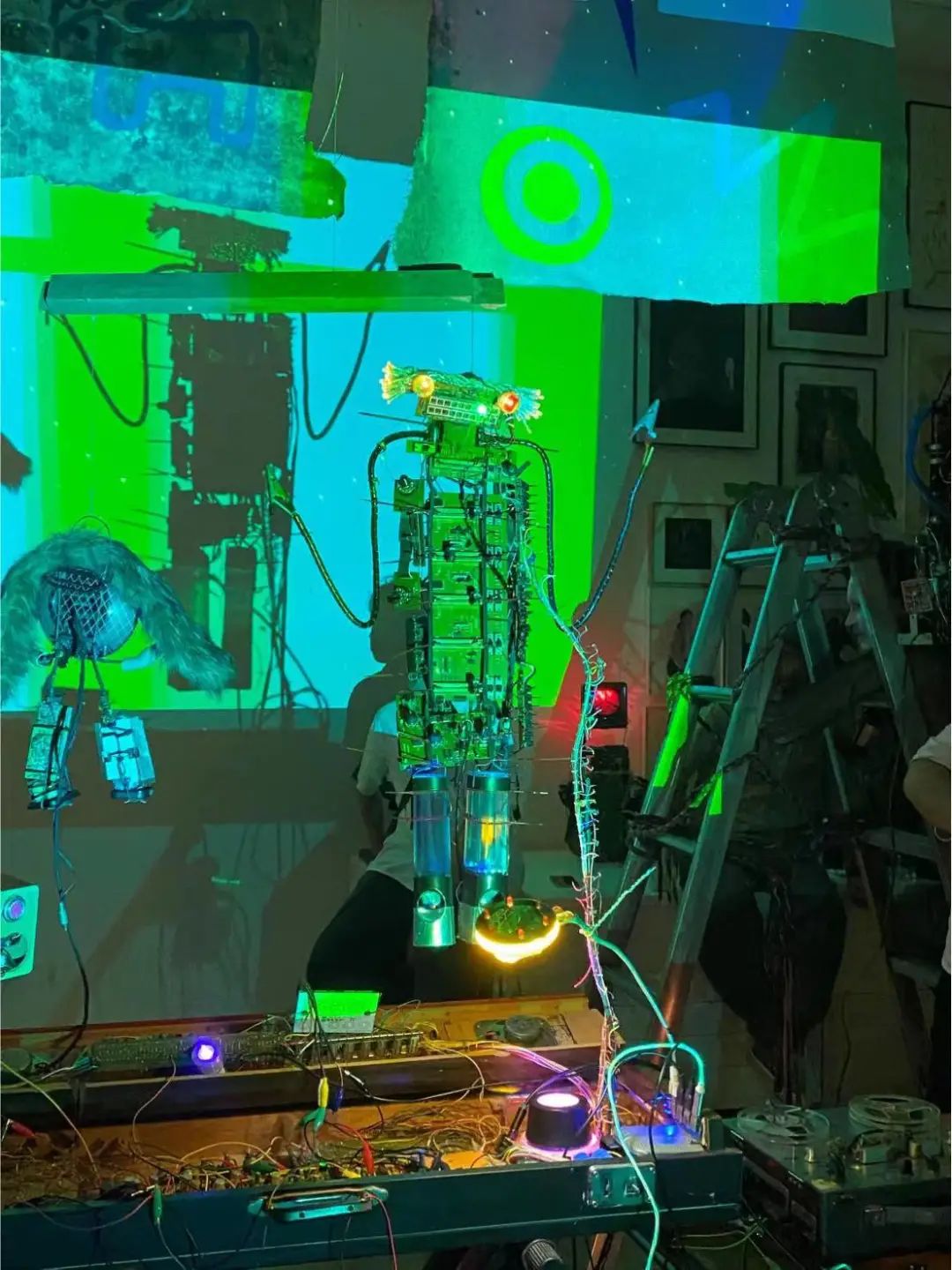 出现在各类音乐现场的机器人 / Robots appearing in various music scenes
出现在各类音乐现场的机器人 / Robots appearing in various music scenes
平时除了去朋友们参与的实验音乐现场之外,他更多会出现在ZhaoDai招待所、wigwam 这类电子Club的舞池里,坦言自己感兴趣的乐队演出并不多。 “相比十年前的北京,现在好的国外音乐人、乐队的演出很少,不过相信肯定很快能恢复起来。”
Usually, apart from going to the experimental music scene that his friends are involved in, Mr Ghost is more likely to be found on the dance floor of electronic clubs like ZhaoDai or Wigwam, he says: "Compared to Beijing ten years ago, there are fewer good foreign musicians and Djs playing now, but I'm sure it will pick up soon."
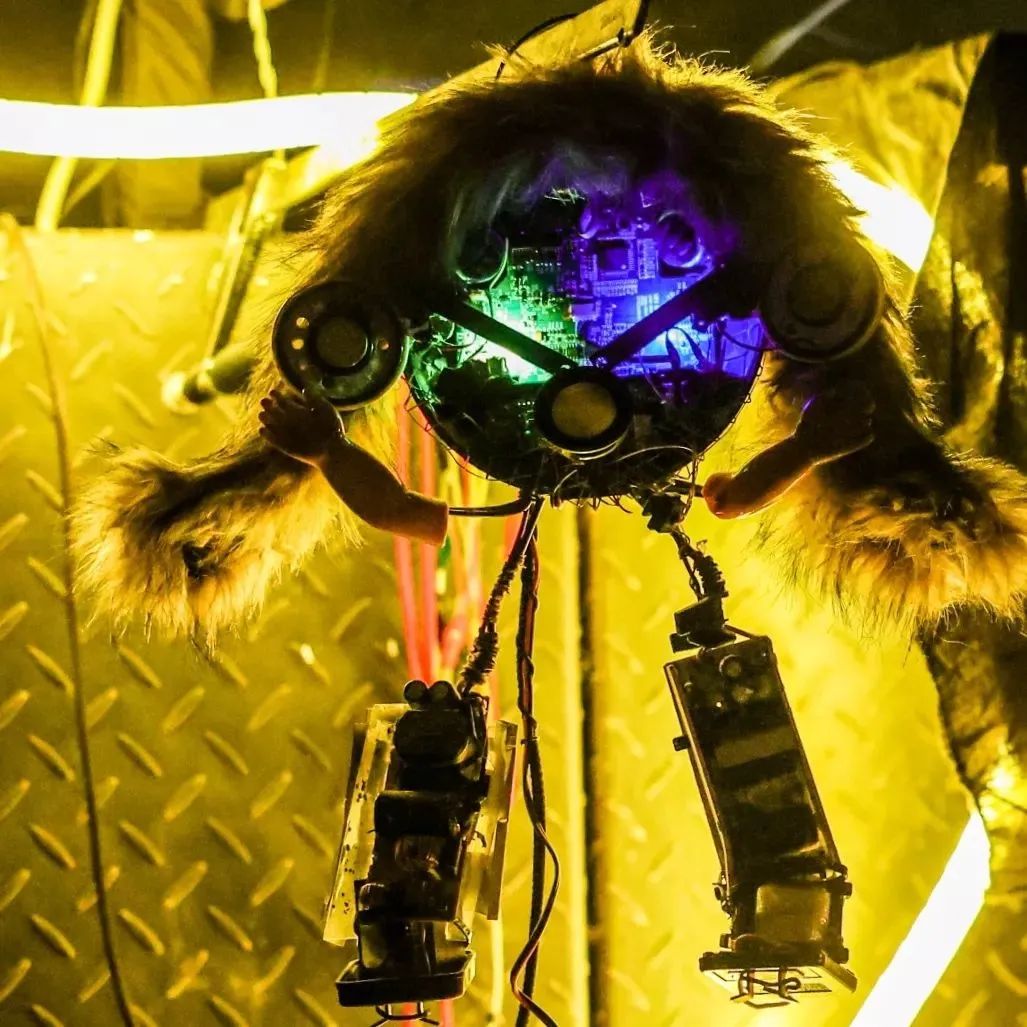
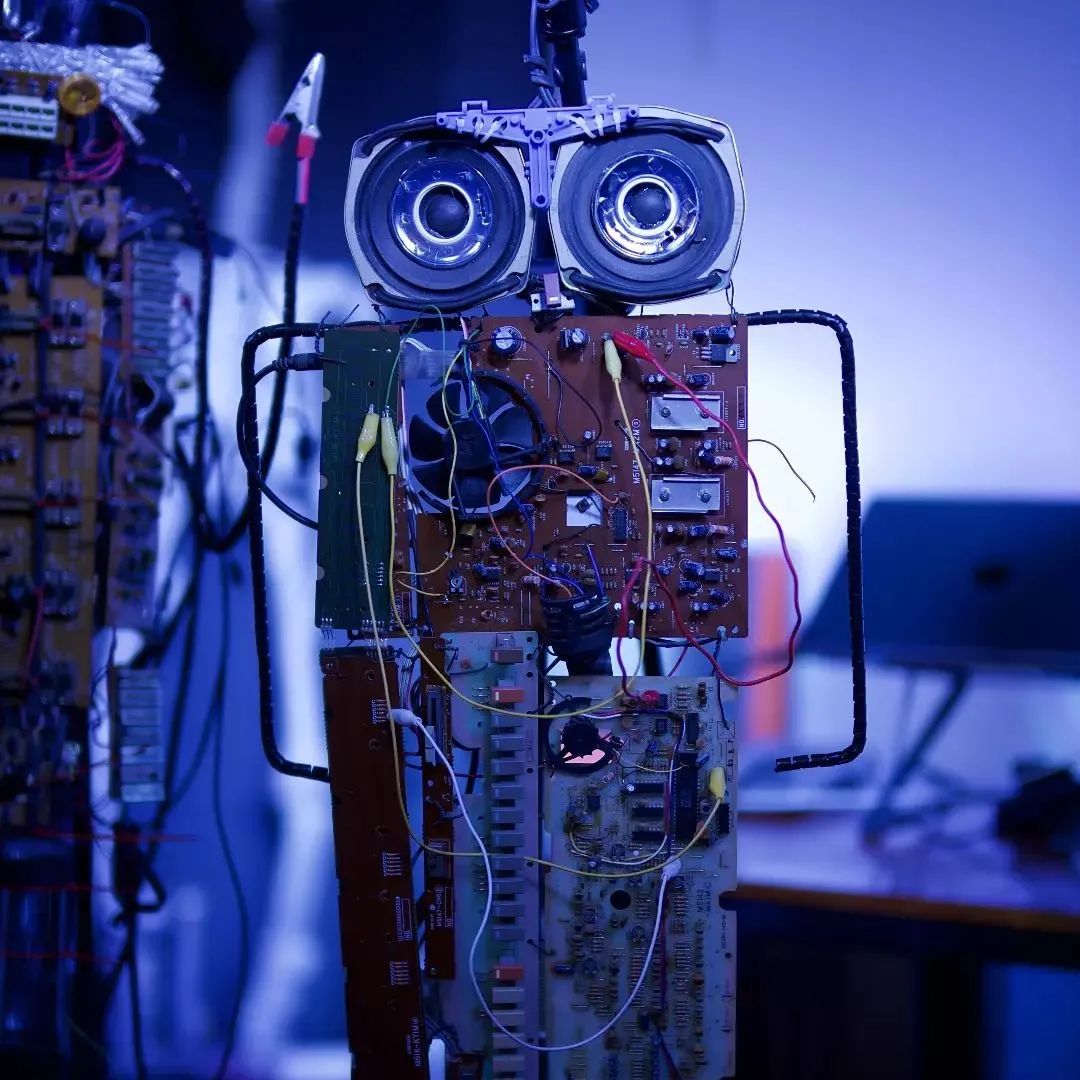
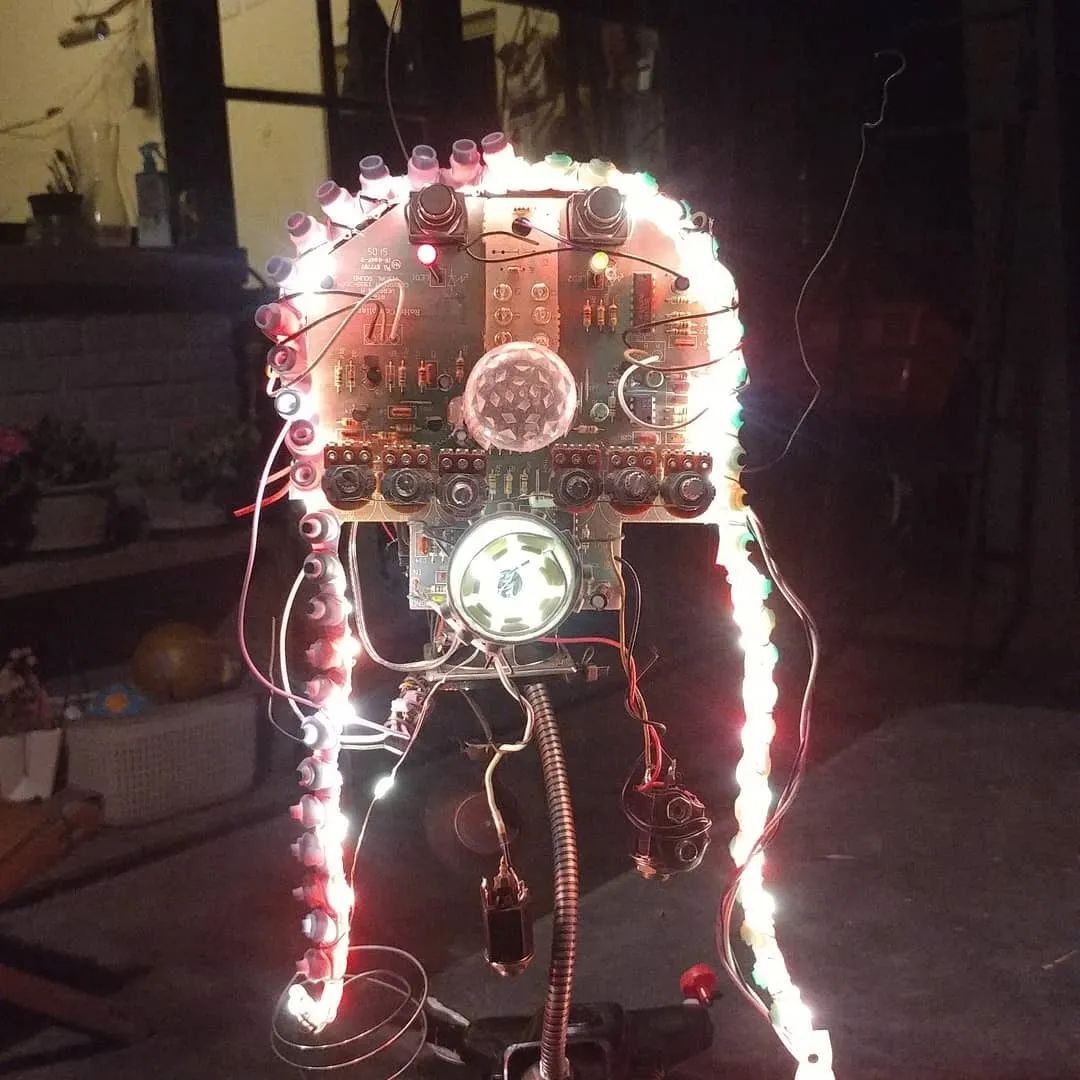 充满电子音乐迷幻色彩的机器人 / Electronic music, psychedelic colors and robots
充满电子音乐迷幻色彩的机器人 / Electronic music, psychedelic colors and robots
至于想看的中国音乐人,鬼大爷给了一个让人有些出乎意料答案:Higher Brothers。 “很想看中国Trap音乐的演出”,孩子们也喜欢听。
As for the Chinese musicians he wanted to hear, Mr Ghost gave a somewhat surprising answer: Higher Brothers. "Would love to see a Chinese Trap music show".
说完后他又想了想,琢磨了下三个字的中文发音,“龙胆紫也不错,”立马切回了熟悉的北京频道。
“一次闪电可能会给地球上带来生命,一次电脑差错也会带来人工意识。 ”鬼大爷笃信这样的观念,善待生活里的偏差,他和“机器人”的故事将在胡同里继续。 最近鬼大爷在用AI API让两个AI互相对话,也许未来他会把这些生命应用到“机器人”身上——也许在下一次, 你就能在胡同里和演出现场中听到新的声响。
"One lightning bolt may bring life on Earth, and one computer error may bring artificial consciousness." Mr Ghost agrees to this perspective, and is actively willing to participate in experiments which may bring more life into machines, as his story with the "robots" continues in the hutong. He has recently been using an AI API to get two AIs to talk to each other, and maybe in the future he will stitch these new soul-parts to the "robots" - maybe next time you will hear new sounds in the hutongs and at the shows.
采访、撰文:洛的来
编辑:于妙妙
图片:来自鬼大爷guibog